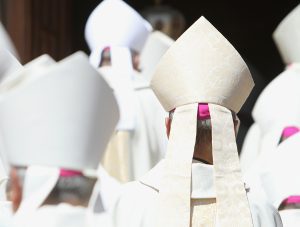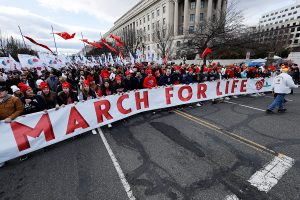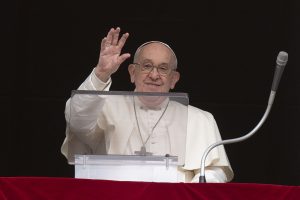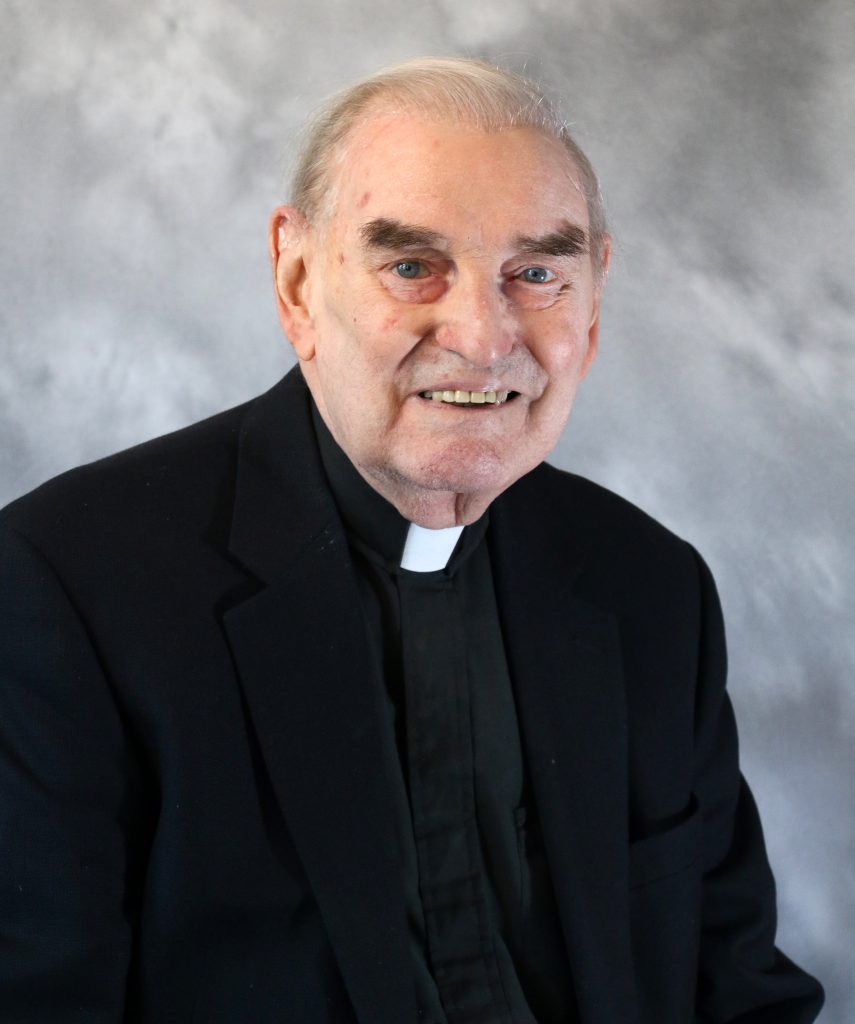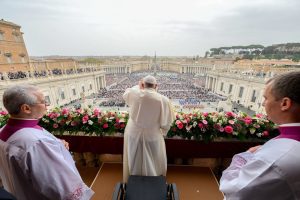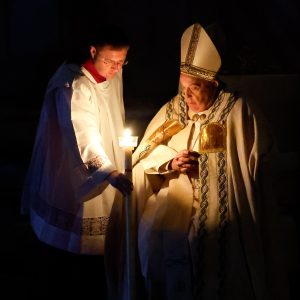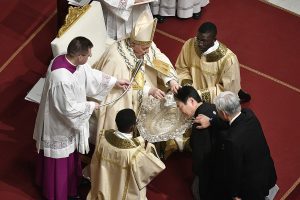(OSV News) – Catholic aid workers in Gaza are determined to continue their mission after a deadly strike killed colleagues from a fellow organization.
Seven staff members of World Central Kitchen died April 1 when their three-vehicle convoy was hit in an Israeli air attack. The group — comprised of Australian, British, Polish and Palestinian nationals, as well as a dual U.S.-Canadian citizen — had just dropped off more than 100 tons of food stocks to a warehouse in central Gaza.
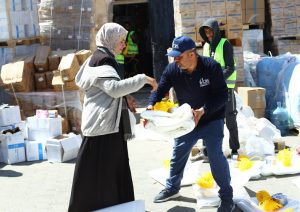
Israel has admitted responsibility for the internationally condemned deaths, which Israel Defense Forces chief of general staff Herzi Halevi called a “grave mistake” resulting from misidentification of the group. WCK founder José Andrés has said his team was targeted “systematically, car by car.”
Now, “the overall humanitarian community is … reeling from the news of the WCK incident,” said Jason Knapp, country representative for Catholic Relief Services in Jerusalem, West Bank and Gaza.
CRS, the official international humanitarian agency of the Catholic community in the United States, provides a range of assistance programs in more than 100 nations. The organization is also a member of Caritas Internationalis, a confederation of over 160 Catholic relief organizations in more than 140 countries that form the official humanitarian arm of the universal Catholic Church.
Founded by the U.S. Catholic bishops in the wake of World War II, CRS is now working to alleviate suffering caused by the Israel-Hamas war, which was sparked by Hamas’ Oct. 7, 2023 ambush — coinciding with a Sabbath and Jewish holiday — on some 22 locations in Israel.
Hamas members gunned down civilians and took 253 hostages, according to Israel, including infants, the elderly and people with disabilities. Following several releases and rescues, some 130 hostages are believed to remain in captivity, with at least 34 believed dead, according to the Israeli Defence Forces.
A New York Times investigation found at least seven locations along the Hamas attack front where Israeli women and girls had been sexually assaulted and mutilated Oct. 7. Returned female hostages have reported sexual abuse while being held by Hamas.
Israel declared war on Hamas Oct. 8, placing Gaza under siege and pounding the region with airstrikes as Hamas returned fire. To date, more than 1,200 in Israel, including at least 30 U.S. citizens, and more than 32,900 in Gaza have been killed, according to Israeli and Palestinian officials respectively. The ensuing humanitarian crisis has left the Middle East “on the verge of the abyss,” said United Nations Secretary-General António Guterres.
That crisis is set to be compounded as WCK and other aid agencies have now suspended operations in Gaza after the April 1 strike. U.S. State Department spokesperson Matthew Miller said that more than 200 aid workers have died so far during the war in Gaza.
Knapp, speaking to OSV News from Jerusalem, said that none of CRS’s 45-member Gaza staff have been killed “to date, thankfully.”
One female staffer, a Gaza native and mother of two young children, remains injured within the Holy Family Catholic Church complex in Gaza City, having been wounded during a Dec. 16, 2023 attack on the compound that killed an elderly woman and her daughter. A second CRS staffer is also sheltering at Holy Family, while a third is staying at the Greek Orthodox Church of St. Porphyrius, said Knapp. The latter church was struck by an Israeli strike in October 2023.
Aid workers are protected under international humanitarian law, and Knapp explained that his team participates in a “humanitarian notification system” to advise the warring parties of CRS Gaza movements.
“There is the ability to notify the Israeli authorities directly or to use a centralized system where basically all humanitarian notifications can go through to the IDF,” Knapp said. “So as CRS, we do use the humanitarian notification system.”
“And then at times, especially if we feel like there are increased risks, we can also notify the Israeli Defense Forces directly through what’s called COGAT (the agency for Coordination of Government Activities in the Territories) to make sure that they’re very aware of our operations and taking appropriate precautions around our staff and our operations,” he said.
Knapp told OSV News he is “amazed every single day by the CRS colleagues who are providing assistance in Gaza.
“The vast majority of our team is Gazan themselves and they are displaced,” he said. “Many of them have had family members lost. They have gone through really immense suffering and yet are finding quite significant hope in being able to serve those who are in need around them, even as they’re in need themselves.”
The CRS Gaza team has “reached about three quarters of a million people since the beginning of the war,” providing “food, cash-based assistance or market-based assistance, blankets and shelter and other types of items to families who need it,” said Knapp.
Most of CRS Gaza’s operations have been forced out of the northern half of Gaza and reestablished in the south, he said.
“We’re working with other actors who are trying to coordinate for the movement of goods into the north, and then basically trying to link them with our partners who are active (there),” so as to ensure “some regularity and sustainability … (in) aid to the north,” Knapp said.
At the same time, a looming invasion of Rafah in the south presents CRS Gaza with another set of challenges, he said.
Along with the “huge, huge concern (of) the protection of civilians,” Knapp said he is troubled by a lack of “plans on the table” about ensuring a steady flow of aid into the area, since the current “pipelines of goods into Gaza … almost all go through areas that would be (within) active military operations.”
Another issue is “the safe and predictable movement of humanitarians in and out of Gaza,” he said. “A lot of NGOs, the U.N. and others are using the Rafah pedestrian crossing to rotate staff into Gaza and out of Gaza.”
Sea and air routes are not viable alternatives for providing “significant amounts of aid,” said Knapp. “We need as many land routes as possible to be functioning at scale.”
Food and emergency shelter are the top aid priorities — and above all, a cessation of hostilities, he said.
“Anytime I talk to a Gazan, they say, ‘Please make the bombs stop. That is by far the most important thing that we need, so we can start building a new life and a future for ourselves,'” said Knapp.

